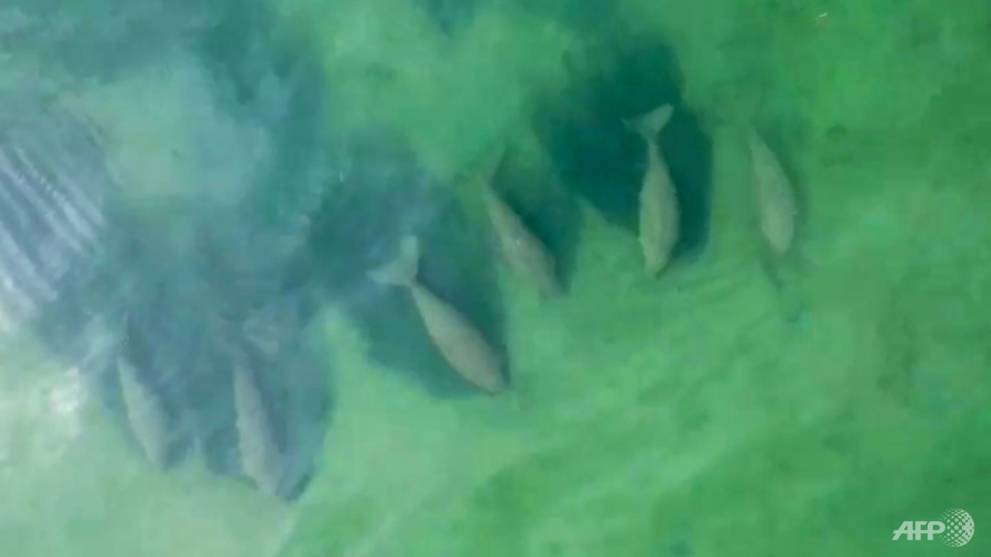
BANGKOK: Mesmerising aerial images showed a herd of more than 30 dugongs drifting serenely off the coast of a Thai island on Wednesday (Apr 22).
Thailand's tourism industry has taken a battering since the outbreak of the coronavirus, putting millions out of jobs after the pandemic paralysed global travel.
Advertisement
Advertisement
But the slowdown in visitor foot traffic has brought a wildlife revival along shorelines and waterways, including reports this week of record numbers of leatherback turtle nests on the country's deserted beaches.
Drone images released by the National Marine Park Operation Center showed the dugongs sunning themselves beneath clear turquoise waters off the coast of southern Libong island.
The slow-moving sea creatures, closely related to the manatee, are classified as a vulnerable species.
Thailand has not always been a safe haven for wildlife, with plastic waste choking marine life and water pollution from boat traffic damaging habitats.
AdvertiRead More – Source

BANGKOK: Mesmerising aerial images showed a herd of more than 30 dugongs drifting serenely off the coast of a Thai island on Wednesday (Apr 22).
Thailand's tourism industry has taken a battering since the outbreak of the coronavirus, putting millions out of jobs after the pandemic paralysed global travel.
Advertisement
Advertisement
But the slowdown in visitor foot traffic has brought a wildlife revival along shorelines and waterways, including reports this week of record numbers of leatherback turtle nests on the country's deserted beaches.
Drone images released by the National Marine Park Operation Center showed the dugongs sunning themselves beneath clear turquoise waters off the coast of southern Libong island.
The slow-moving sea creatures, closely related to the manatee, are classified as a vulnerable species.
Thailand has not always been a safe haven for wildlife, with plastic waste choking marine life and water pollution from boat traffic damaging habitats.
AdvertiRead More – Source











